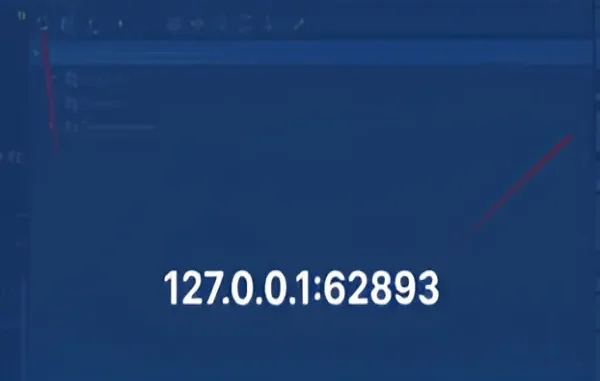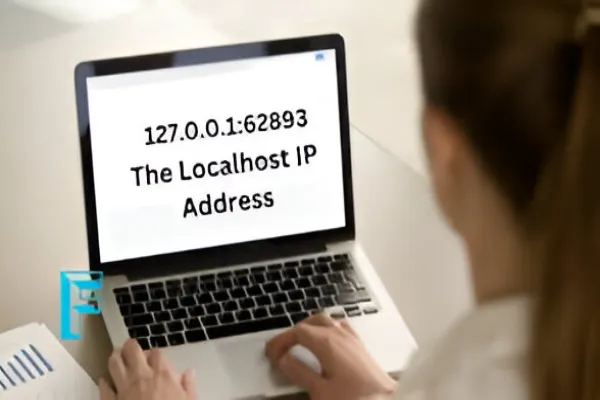
While navigating the complexities of software and web applications, you might stumble upon the cryptic code “127.0.0.1:62893.” This seemingly random string of numbers and a colon can leave you wondering what it means and why it popped up. Don’t worry, for this guide sheds light on the mystery behind 127.0.0.1:62893, equipping you to troubleshoot technical challenges with newfound knowledge.
Definition for 127.0.0.1:62893
Localhost communication on port 62893, potentially used by applications for interacting with a local Memcached service.
What Does 127.0.0.1 Represent?
Let’s break down the first part of the address: 127.0.0.1. This specific IP address, also known as localhost, plays a crucial role in how your computer communicates with itself. Here’s the key takeaway:
- Internal Loopback: 127.0.0.1 signifies an internal loopback address. It represents a virtual device within your computer, allowing programs to access local resources and services without needing an external network connection.
Think of it as a conversation happening internally. Your computer uses localhost to talk to itself, testing functionalities and processes in a self-contained environment.
What About the Port Number (62893)?
Now, let’s address the second portion: 62893. This number refers to a specific port on your computer. Ports act like doorways, allowing different applications to send and receive data. Here’s where it gets more nuanced:
- Port Usage by Applications: The port number 62893 isn’t exclusively used by localhost. While not as common as some others, it’s sometimes used by applications like Memcached, a high-performance memory caching system.
In the context of 127.0.0.1:62893, it suggests a potential attempt by an application to access a local Memcached service running on your computer.
Why Might I See 127.0.0.1:62893?

Understanding the meaning of 127.0.0.1:62893 is valuable in various situations. Here are some common scenarios:
- Debugging Software: Developers who use Memcached for caching might encounter 127.0.0.1:62893 while debugging their applications. It indicates an attempt to connect to the local Memcached service for data retrieval or storage.
- Error Messages: Sometimes, error messages in software might reference localhost and a specific port number. If you see an error mentioning 127.0.0.1:62893, it might indicate an issue with the local Memcached service or the application trying to connect to it.
- Understanding Application Behavior: Knowing that an application utilizes 127.0.0.1:62893 for communication sheds light on its functionality. It suggests the application potentially relies on Memcached for caching data, potentially improving performance.
By understanding what 127.0.0.1:62893 represents, you can better interpret error messages, diagnose software issues related to local communication, and gain a deeper understanding of how certain applications function behind the scenes.
Troubleshooting Tips for 127.0.0.1:62893 Issues
If you encounter 127.0.0.1:62893 in the context of an error message, here are some steps to troubleshoot:
- Verify Service Status: If you’re using Memcached, ensure the service is running correctly on your computer. Check system services or process lists to confirm it’s active.
- Check Application Configuration: Sometimes, applications might have configuration settings related to Memcached and its port usage. Double-check if the application’s configuration matches the expected port number (62893).
- Firewall Restrictions: In rare cases, firewall rules might block access to specific ports. If you suspect a firewall issue, temporarily disable it (with caution) to see if the problem persists.
Remember, these are general troubleshooting steps. Consulting software documentation or seeking help from developers might be necessary for specific applications using Memcached.
Beyond Troubleshooting: The Benefits of Localhost Communication
In conclusion, demystifying 127.0.0.1:62893 equips you to navigate the complexities of software with newfound confidence. You gain the ability to troubleshoot issues more effectively, make informed decisions about software behavior, and elevate your overall technical literacy. No longer will the cryptic “127.0.0.1:62893” leave you puzzled. Instead, it will serve as a stepping stone to a deeper understanding of how applications interact within your computer’s internal ecosystem.
Understanding localhost communication, even in the context of 127.0.0.1:62893, offers several benefits:
- Improved Debugging: By understanding how applications utilize localhost and ports, you can debug software issues more effectively. Error messages referencing localhost become clearer, allowing you to pinpoint the root cause of communication problems.
- Informed Decisions: Grasping localhost communication empowers you to make informed decisions regarding unfamiliar software. If an application attempts to connect to localhost on a specific port (like 62893), you can assess if it aligns with Memcached usage or might raise security concerns if the purpose is unclear.
- Enhanced Technical Literacy: Understanding technical concepts like localhost expands your overall computer knowledge. This foundation proves valuable when navigating technical documentation, interacting with developers, or troubleshooting various software challenges.






Leave a Reply